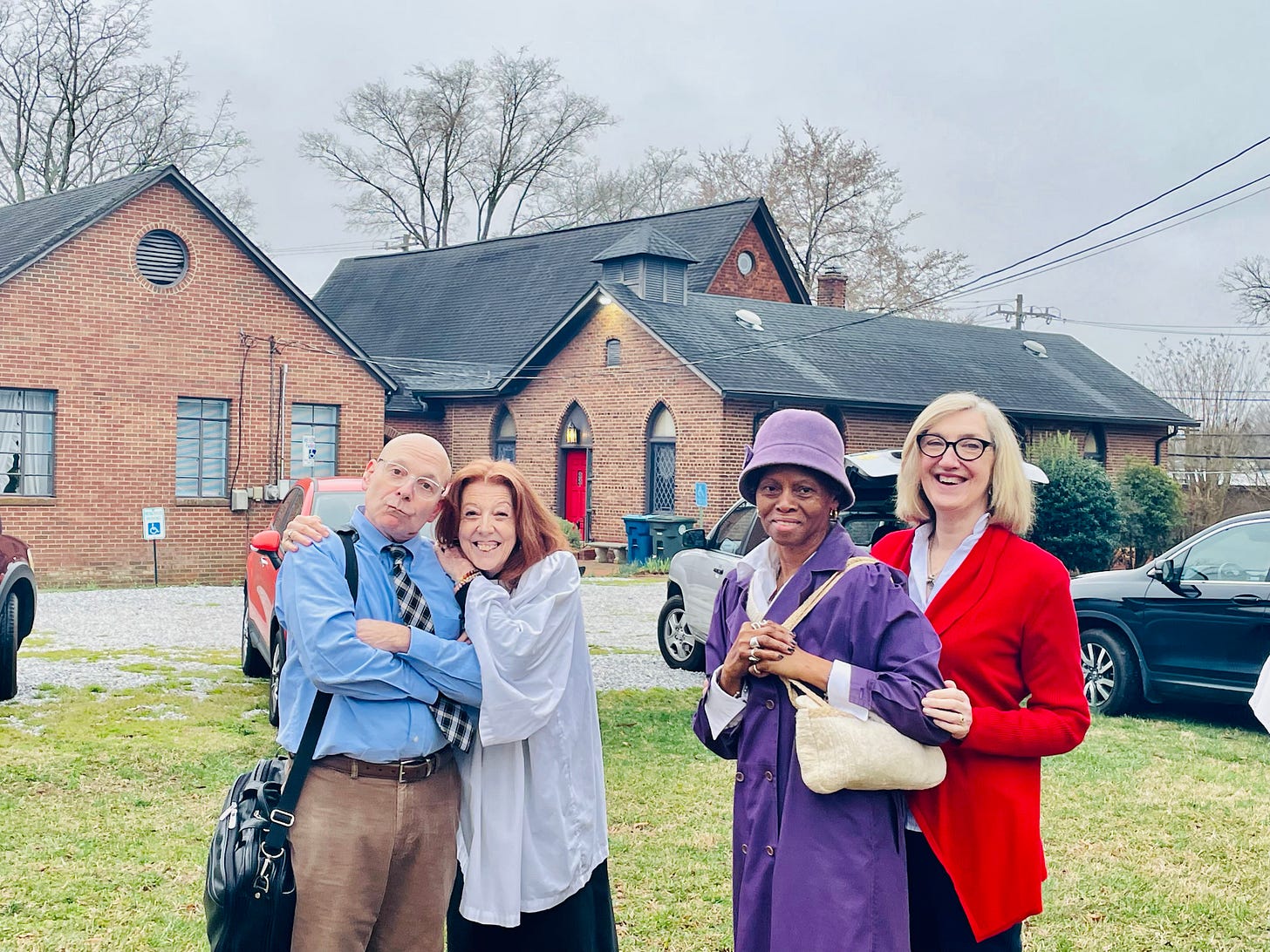Our church is 'like family'
If we value our closeness (and we do), we can't keep hoping that strangers will just wander in...
In the course of my career as a priest, I’ve sat with groups of church leaders dozens of times.
I often ask them what’s so great about their church - what they love the most, why they are members.
Without fail - I literally mean 100% of the time - no matter what their situation: big church, small church, struggling church, conflicted church, new church, old church - they all say the same thing:
’We’re like family.’
In so many ways, this shows the strength of church - why it is so important, what it means for our lives loving God and each other.
In others, though, it shows the challenge for church.
After all, how do we become members of a family?
We’re born into a family
We’re adopted into a family
We marry into a family
The boundaries are high.
Even if it’s not technically legal - if we’re an ‘uncle’ who’s not truly related by blood or we’re a ‘partner’ but not technically married - to become ‘like family’ is not some random designation. It means this person is one of us.
Yet even as congregations view themselves as ‘like family’, they often act as if strangers are going to walk off the street and into their pews during worship and feel comfortable there. Or that they themselves will feel comfortable with this happening.
If someone randomly walked off the street, opened your door, and sat in your living room, how would that be received?
Oh, I know a few people who would just make some coffee, grab some cookies, and go straight into hospitality mode. I’m sure you do, too!
But for most of us, this would be awkward. Which is one reason it rarely happens - at church or in your living room!
My perception is that most ‘newcomers’ are actually ‘family members’ from somewhere else.
Unless…
Who are you?
Don’t get me wrong, I think being ‘like family’ is a good thing. In fact, I think we should lean into this more.
Because ‘family’ can sometimes be about keeping people out (your boyfriend can’t be in the photos because he’s not technically part of the family…).
But the best families are about bringing people in: intentionally growing in love and delighting in connection.
The key word is intentional.
If you’re a ‘church family’, it’s going to be problematic to value your closeness as a community if you’re also hoping people will just somehow wander in.
Here’s what I see:
At some point, in order for a family - any kind of family - to thrive, it’s members have to leave home and fall in love.
They have to intentionally seek others - one by one - who are like them. And also not like them. They have to make connections with people away from the family, then gently bring them into the fold - where they are welcomed and included and loved.
Families who don’t send members out to bring in new loved ones end up dying off, little by little. They end up huddled inside their own rooms, their own customs, with no fresh air or light.
Families who don’t intentionally make room to include new members - not just ‘newcomer dinners’ or activities, but truly bringing them into the rituals and celebrations and daily life of the family - won’t keep them for long.
Families can make room for new members in so many ways. It doesn’t have to be in person. It doesn’t have to be Sunday worship.
Technology is so helpful for the connection piece - and the falling in love piece. Because people don’t just wander past your door all that often. And they’re intimidated to come in.
But you can build a bridge to help them find you - and vice versa.
How is your congregation like family?
How is the adventure of falling in love with new people and bringing them into the life of the church going for you?
Center your life - or your congregation’s life - around following Jesus the way the first Christians did….





Your posting struck a number of chords with me. The family metaphor does seem to be universal, at least among Protestant congregations. I guess that's why Edwin Friedman's Family Systems approach gained such popularity in the 1980s and 90s. But your reflections called to mind a more recent assessment of the family metaphor I found in "Called to Community," a selection of writings from Plough Books. The book is designed for small group study with 52 topics for a year's curriculum. In the fifth week ("Brothers, Sisters") an excerpt from Hal Miller compares and contrasts the metaphors of Body and Family in ways you might find interesting!
Interesting, many of the struggling congregations I see are the ones that have become so obsessed with bringing new people in and appealing to the stranger, that they forgot to keep the home fires burning and when they do drag some warm body in off the street, there's nothing to really welcome them into. Of course these congregations will also tell you that they are family, but it seems to be the echo of a family rather than the real thing.